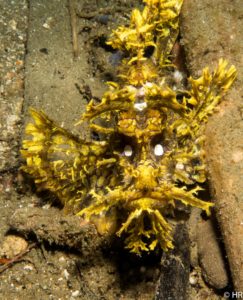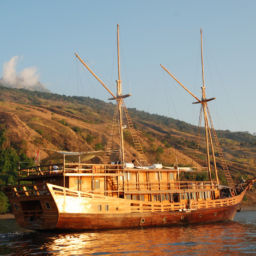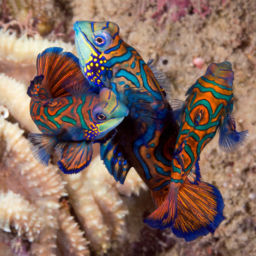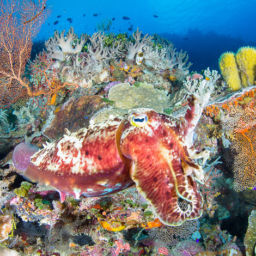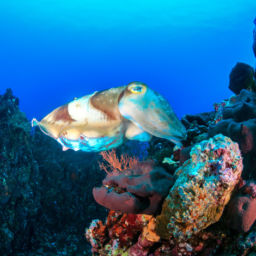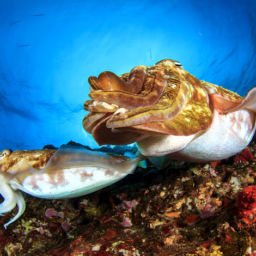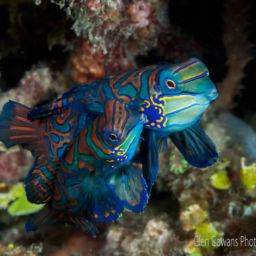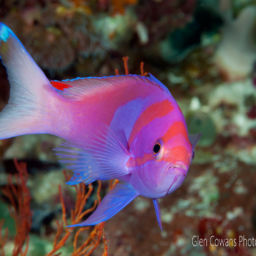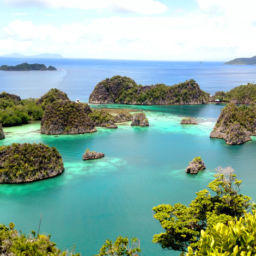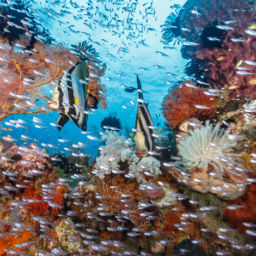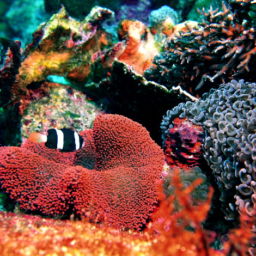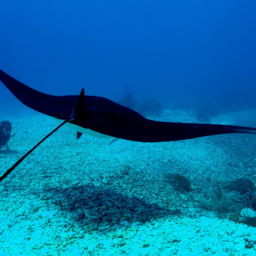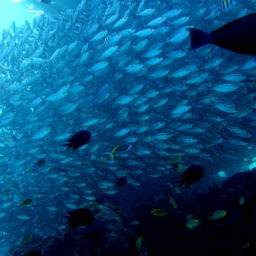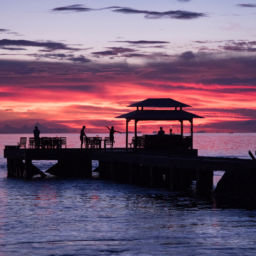Those who love muck diving and searching for weird, wacky underwater critters should put scuba diving in Ambon, Indonesia on their bucket list. Although Lembeh has long reigned supreme among muck-diving destinations, Ambon is nothing short of excellent when it comes to this macro-focused pursuit. If the words “rhinopias” and “hairy frogfish” make you squeak with excitement — and why wouldn’t they — you must check out scuba diving in Ambon.
How to get there
Pattimura Airport (AMQ) is the only one on Pulau Ambon, conveniently located close to the bay. The airport has flights to Makassar, Manado, Jakarta and other destinations within Indonesia. There are also flights from Ambon to Sorong, which makes it a convenient stop on the way to or from Raja Ampat.
Once you arrive, you can organize your transfer with your hotel or dive shop, but there are plenty of taxis at the airport as well. Aside from the diving, you can visit a few sites in Ambon City, but the area’s most interesting attractions are underwater.
Choosing a dive operation
There are only a handful of operators in the area, so your lodging requirements and the number of dives you want to do will determine your choice of dive operator.
Blue Motion has a shop on the beach in Laha village, right in front of one of the best dive sites. They also run an operation in Banda if you would like to check out more of the area’s diving. Blue Motion doesn’t offer accommodation, but will help you book if you would like. Only basic homestays are available next to the dive shop. You can also stay closer to Ambon itself and get around via taxi or scooter. A few cozy hotels are available within a 20- to 30-minute range.
The Maluku Divers Resort is the high-end option in the same area, with a prime location right on the beach. There are comfortable waterfront bungalows with hot-water showers, a dive lounge and open-air restaurant.
Alternately, many well-known Indonesian liveaboards feature itineraries including Ambon and the Banda Sea. Although these cost significantly more than land-based stays, you will get to dive multiple times per day and will have both your accommodation and meals taken care of.
Other need-to-know tips
A lot of the dive sites are located along the shore, so bring booties and open-heels fins to make shore entry easy.
Ambon Island is not well developed for tourism, so prepare to practice your Indonesian language skills. Ambon City has a few malls where you can buy toiletries and other necessities, but there is no dive gear available in the area so do not forget to pack spare parts.
Favorite scuba diving in Ambon
 Jetty Air Manis
Jetty Air Manis
Along the Laha coast, this shallow jetty over a sandy bottom offers lots of fish life in a compact area. Dozens of frogfish, juveniles of many species (lionfish, batfish, flounder), nudibranchs, and eels all call the area home. On a good day, the sun shining through the pillars makes for amazing photos.
Rhino City
A highlight of Ambon fish life is the famous and elusive rhinopias, a scorpionfish native to the Indian and Pacific Oceans. This dive site offers a high chance of seeing one of these amazing critters, as Ambon hosts several different species. The dive itself is a sandy slope with patches of soft coral. As with most dives in the area, just go slow and look for small things.
Laha 1, 2 and 3
These dive sites, located right in front of Blue Motion dive shop, have some of the best critters you will find in the area. A lucky diver can spot anything there: rhinopias, cuttlefish, seahorses, frogfish, several species of pipefish, harlequin shrimp, sea moths, dragonets, juvenile spadefish…the list is endless.
SS Duke of Sparta
After all this muck diving, switch it up with a good wreck dive. The SS Duke of Sparta, also known as the SS Aquila, is a huge cargo ship, 449 feet (137 m) long, that’s been underwater since 1958. The wreck does not host a massive amount of fish life, but the structure is huge and in great condition, offering easy penetration of some of the cargo compartments.


